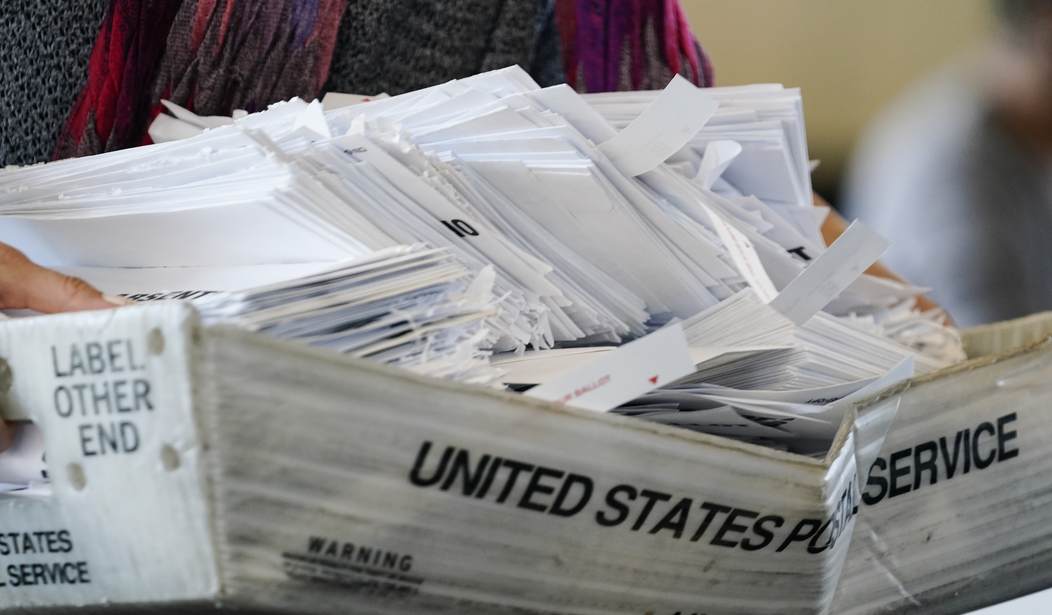Before the 2020 presidential election, mail-in voting played a relatively minor role in U.S. elections. But, that changed after dozens of state officials used the pandemic to circumvent state legislatures and pass rules that allowed them to send tens of millions of absentee ballots based on outdated and inaccurate voter registration rolls.
Despite this abrupt pivot in how the 2020 election was conducted, we have been told time and again that the 2020 election was the most safe and secure in history. If this is true—that mass mail-in voting is as safe and secure as traditional in-person voting—then why have the vast majority of developed countries outlawed this practice?
The answer to that question is simple and straightforward. Most First World nations know for a fact that mass mail-in voting is not safe nor secure and almost certainly results in a deluge of illegal ballots being cast and counted.
Take Europe for example, which has basically banned mass mail-in voting across the continent for decades. There are 27 countries in the European Union (EU), of which 17 have banned mail-in voting unless the citizen lives overseas. In six of those nations, voters are required to present photo identification to receive a mail-in ballot. In six others, mail-in voting has been basically outlawed. Among the 16 non-EU nations in Europe, every single one has banned mail-in voting for those citizens who do not live abroad, and every single one also requires photo identification to obtain a mail-in ballot.
A very similar trend exists among OECD countries. Not including the United States, nearly half of the member states in the Organization for Economic Cooperation and Development (OECD) have banned mail-in voting unless the citizen lives abroad. Moreover, 30 percent of these countries require photo ID to attain a mail-in ballot and more than a few have outright outlawed mail-in voting.
Recommended
A few OECD nations do allow limited mail-in voting, such as Japan and Poland. However, in order to vote by mail in these countries, one must be disabled and acquire documentation to confirm their inability to vote in-person.
Brazil, which is not a member state of the OECD but has a working relationship with the OECD bloc, has also completely outlawed mail-in voting.
There are several reasons why these countries have decided to severely restrict mail-in voting, foremost being that they have had direct experience with the trials and tribulations that are inherent to this lackadaisical method of casting ballots.
In 1975, France banned mail-in voting after a series of scandals demonstrated the vulnerability of sending ballots by mail. More recently, in 2005, the United Kingdom was rocked by allegations of widespread illegal mail-in voting after six councilors in Birmingham were convicted of organizing a “massive, systematic and organized” postal voting fraud campaign.
Closer to home, Mexico banned mail-in voting in 1991 after an abundance of evidence emerged that the long-ruling Institutional Revolutionary Party had relied on illegal mail-in voting to remain in power for decades.
The 2020 presidential election was undoubtedly tainted by widespread illegal mail-in voting. We know this because history shows that mail-in voting is rife with illegality but also because the voters have admitted to illegally (either wittingly or unwittingly) casting mail-in ballots in the 2020 election at a clip that almost certainly impacted the outcome.
For more details on how prevalent illegal mail-in voting was in the 2020 election, simply read The Heartland Institute’s latest policy study, “Who Really Won the 2020 Election? Measuring the Effect of Mail-in Voter Fraud in the Trump-Biden Race for the White House.”
So, why does this matter? Why should Americans care about mail-in voting? Because free and fair elections are the lynchpin of a flourishing nation. Because we cannot have domestic tranquility if half of the citizenry does not have confidence that elections are being run honestly. Because we probably cannot survive another highly disputed and controversial election, like we experienced in 2020?
Fortunately, there are several solutions that have been proven to prevent mass illegal mail-in voting both around the world and here at home.
First, state legislatures must reaffirm their constitutional duty of overseeing how elections are conducted. Second, states must encourage in-person voting with a photo ID, ideally as close to Election Day as possible. Third, states must impose prerequisites for mail-in voting, such as being disabled, living overseas, or serving abroad in the military. Fourth, states should enact guardrails to reduce illegal mail-in voting from occurring, including signature verification, or a witness or notary signature. Fifth, states must outlaw ballot harvesting and unattended ballot drop boxes while cleaning their voting rolls on an annual basis and removing deceased persons and those who no longer reside at the address listed. And, sixth, those who engage in illegal voting schemes must be held to account.
The clock is ticking. The 2024 election is mere months away. It is not too late, but states must act swiftly to ensure that the 2024 election is, indeed, as free and fair as possible.
Chris Talgo (ctalgo@heartland.org) is editorial director at The Heartland Institute.

























